Mayor of Chicago
The mayor of Chicago is the chief executive of city government in Chicago, Illinois, the third-largest city in the United States. The mayor is responsible for the administration and management of various city departments, submits proposals and recommendations to the Chicago City Council, is active in the enforcement of the city's ordinances, submits the city's annual budget and appoints city officers, department commissioners or directors, and members of city boards and commissions.
| Mayor of Chicago | |
|---|---|
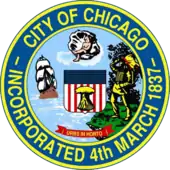 Seal of the City of Chicago | |
| Style | Her Honor The Honorable |
| Term length | 4 years |
| Inaugural holder | William Butler Ogden |
| Formation | 1837 |
| Succession | Vice Mayor |
| Salary | $216,210 |
| Website | Office of the Mayor |
During sessions of the city council, the mayor serves as the presiding officer. The mayor is not allowed to vote on issues except in certain instances, most notably where the vote taken on a matter before the body results in a tie.
The office of mayor was created when Chicago became a city in 1837.
Appointment powers
The mayor appoints the commissioner of the Chicago Fire Department and superintendent of the Chicago Police Department. He or she also appoints the heads of other departments,[1] the largest of which are the Water Management Department (formed by the consolidation of the former Water Department and Sewer Department under Richard M. Daley), and the Streets & Sanitation Department. He or she also appoints members to the boards of several special-purpose governmental bodies including the Chicago Park District, Chicago Public Library, Chicago Housing Authority, Chicago Transit Authority, and the Metropolitan Pier and Exposition Authority. Under Richard M. Daley, the Illinois legislature granted the mayor power to appoint the governing board and chief executive officer of the Chicago Public Schools and subordinated the district to the mayor; the district had long been an independent unit of government.
The Chicago City Clerk and City Treasurer of Chicago are elected separately, as are the 50 aldermen who form the city council. The mayor is empowered, however, to fill vacancies in any of these 52 elected offices by appointment. In turn, the city council elects one of its own to fill a mayoral vacancy.
Election and succession
The mayor of Chicago is elected by popular vote every four years, on the last Tuesday in February. A run-off election, in the event that no candidate garners more than fifty percent of the vote, is held on the first Tuesday in April. The election is held on a non-partisan basis. Chicago is the largest city in the United States not to limit the term of service for its mayor.
In accordance with Illinois law,[2][3] the city council elects a vice mayor who serves as interim mayor in the event of a vacancy in the office of the mayor or the inability of the mayor to serve due to illness or injury, until the city council elects one of its members acting mayor or until the mayoral term expires.[3] As of May 2019, the current vice mayor is Tom Tunney.[4] However, if a vacancy occurs in the office of mayor with more than 28 months remaining in the mayoral term and at least 130 days before the next general municipal election, then a special election must be held to choose a new mayor to serve out the remainder of the term at that general municipal election; if a vacancy occurs with fewer than 28 months remaining in the mayoral term or fewer than 130 days before the next general municipal election, then the acting mayor serves as mayor until the mayoral term expires.
The order-of succession involving the vice mayor was made concrete following disputes that arose in the aftermath of the death in office of Richard J. Daley, and was subsequently implemented following the death in office of Harold Washington, which saw Vice Mayor David Orr become acting mayor.[5] Prior to this, the city had vague succession laws which indicated that the president pro tempore of the City Council would succeed as mayor. This was not followed after the death of Daley, and the city council appointed Michael Bilandic acting mayor instead of having pro tempore Wilson Frost become mayor,[6] due to City Corporation Counsel William R. Quinlan ruling that, since the city did not have a statute specifically outlining succession, the City Council would need to elect the interim mayor.[7]
Six instances have seen the City Council appoint either an acting mayor, acting mayor pro tempore, or interim mayor.
In the absence of the mayor during meetings of the city council, the president pro tempore of the city council, who is a member of and elected by the city council, acts as presiding officer. Unlike the mayor, the president pro tempore can vote on all legislative matters. If neither the mayor nor pro tempore can preside, the vice mayor presides.[8]
History
The first mayor was William Butler Ogden. 45 men and two women (Jane Byrne, 1979–1983, Lori Lightfoot, 2019–), have held the office. Two sets of father and son have been elected Mayor of Chicago: Carter Harrison, Sr. (1893) and Carter Harrison, Jr. (1897–1905, 1911–1915), as well as Richard J. Daley (1955–1976) and Richard M. Daley (1989–2011). Carter Harrison, Jr. was the first mayor to have been born in the city. As an interim mayor, David Duvall Orr had the shortest mayoral term. Richard M. Daley was elected six times becoming Chicago's longest-serving mayor, surpassing his father's record.[9] The first Irish Catholic mayor was John Patrick Hopkins (1893–1895), and Rahm Emanuel (2011–2019) is the only Jewish American to have served as mayor. Harold Washington (1983–1987) was the first African American mayor. Current Mayor Lightfoot (sworn in May 2019) is the city's first African American woman and first openly LGBTQ mayor.
By charter, Chicago has a "weak-mayor" system, in which most of the power is vested in the city council. In practice, however, the mayor of Chicago has long been one of the most powerful municipal chief executives in the nation. Unlike mayors in most other weak-mayor systems, he or she has the power to draw up the budget. For most of the 20th century, before the decline of patronage and the mayor's office becoming officially nonpartisan in 1999, the mayor was the de facto leader of the city's Democratic Party, and had great influence over the ward organizations.[10]
List of mayors
The mayoral term in Chicago was one year from 1837 through 1863, when it was changed to two years. In 1907, it was changed again, this time to four years. Until 1861, municipal elections were held in March. In that year, legislation moved them to April. In 1869, however, election day was changed to November, and terms expiring in April of that year were changed. In 1875, election day was moved back to April by the city's vote to operate under the Cities and Villages Act of 1872.
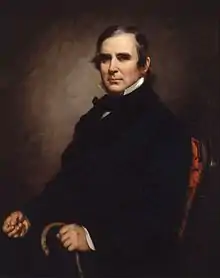
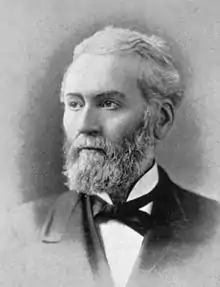
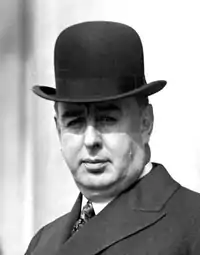
.jpg.webp)
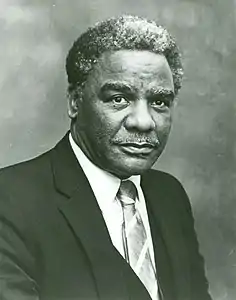
_(cropped).jpg.webp)
.png.webp)
Town Presidents
Between 1833 and 1837, Chicago was incorporated as a town. Two individuals served as Town President during that period.
| No. | Town President | Term in office | Party | Notes | ||
|---|---|---|---|---|---|---|
| 1 | Thomas Jefferson Vance Owen | August 12, 1833 – 1834 |
||||
| 2 | 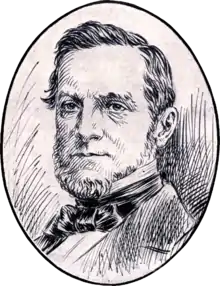 |
John H. Kinzie | 1834 – March 4, 1837 |
Whig | ||
Mayors
Chicago has been incorporated as a city since 1837. Here is a list of mayors since that time.
| #Consecutive terms[11] | #Mayor (prior non-consecutive terms in parens) | Image | Mayor | Term start | Term end | Terms | Years | ||
|---|---|---|---|---|---|---|---|---|---|
| 1 | 1 | William B. Ogden | 1837 | 1838 | 1 | 1 | Democratic | ||
| 2 | 2 | Buckner S. Morris | 1838 | 1839 | 1 | 1 | Whig | ||
| 3 | 3 | Benjamin W. Raymond | 1839 | 1840 | 1 | 1 | Whig | ||
| 4 | 4 | Alexander Loyd | 1840 | 1841 | 1 | 1 | Democratic | ||
| 5 | 5 | Francis C. Sherman | 1841 | 1842 | 1 | 1 | Democratic | ||
| 6 | (3) | Benjamin W. Raymond | 1842 | 1843 | 1 | 1 | Whig | ||
| 7 | 6 | Augustus Garrett | 1843 | 1844 | 1 | 1 | Democratic | ||
| 8 | 7 | Alson Sherman | 1844 | 1845 | 1 | 1 | None | ||
| 9 | (6) | Augustus Garrett | 1845 | 1846 | 1 | 1 | Democratic | ||
| 10 | 8 | John P. Chapin | 1846 | 1847 | 1 | 1 | Whig | ||
| 11 | 9 | James Curtiss | 1847 | 1848 | 1 | 1 | Democratic | ||
| 12 | 10 | James H. Woodworth | 1848 | 1850 | 2 | 2 | None | ||
| 13 | (9) | James Curtiss | 1850 | 1851 | 1 | 1 | Democratic | ||
| 14 | 11 | Walter S. Gurnee | 1851 | 1853 | 2 | 2 | Democratic | ||
| 15 | 12 | Charles McNeill Gray | 1853 | 1854 | 1 | 1 | Democratic | ||
| 16 | 13 | Isaac L. Milliken | 1854 | 1855 | 1 | 1 | Democratic | ||
| 17 | 14 | Levi Boone | 1855 | 1856 | 1 | 1 | American | ||
| 18 | 15 | Thomas Dyer | 1856 | 1857 | 1 | 1 | Democratic | ||
| 19 | 16 | John Wentworth | 1857 | 1858 | 1 | 1 | Republican | ||
| 20 | 17 | John C. Haines | 1858 | 1860 | 2 | 2 | Democratic | ||
| 21 | (16) | John Wentworth | 1860 | 1861 | 1 | 1 | Republican | ||
| 22 | 18 | Julian S. Rumsey | 1861 | 1862 | 1 | 1 | Republican | ||
| 23 | (5) | Francis C. Sherman | 1862 | 1865 | 2 | 2 | Democratic | ||
| 24 | 19 | John B. Rice | 1865 | 1869 | 2 | 4 | Republican | ||
| 25 | 20 | Roswell B. Mason | 1869 | 1871 | 1 | 2 | Citizens | ||
| 26 | 21 | Joseph Medill | 1871 | 1873 | 1 | 2 | Republican (Dry) | ||
| Lester L. Bond (acting) |
1873 | 1873 | 1⁄4 | 1⁄2 | Republican | ||||
| 27 | 22 | Harvey Doolittle Colvin | 1873 | 1875 | 1 | 2 | Republican (Wet) | ||
| 28 | 23 | Monroe Heath | 1876 | 1879 | 2 | 4 | Republican | ||
| 29 | 24 | Carter Harrison Sr. | 1879 | 1887 | 4 | 8 | Democratic | ||
| 30 | 25 | John A. Roche | 1887 | 1889 | 1 | 2 | Republican | ||
| 31 | 26 | DeWitt C. Cregier | 1889 | 1891 | 1 | 2 | Democratic | ||
| 32 | 27 | Hempstead Washburne | 1891 | 1893 | 1 | 2 | Republican | ||
| 33 | (24) | Carter Harrison Sr. † | 1893 | 1893 | 1⁄4 | 1⁄2 | Democratic | ||
| 34 | 28 | George Bell Swift (interim mayor) |
1893 | 1893 | 1⁄12 | 1⁄6 | Republican | ||
| 35 | 29 | John P. Hopkins | 1893 | 1895 | 2⁄3 | 3 | Democratic | ||
| 36 | (28) | George Bell Swift | 1895 | 1897 | 1 | 2 | Republican | ||
| 37 | 30 | Carter Harrison Jr. | 1897 | 1905 | 4 | 8 | Democratic | ||
| 38 | 31 | Edward F. Dunne | 1905 | 1907 | 1 | 2 | Democratic | ||
| 39 | 32 | Fred A. Busse | 1907 | 1911 | 1 | 4 | Republican | ||
| 40 | (30) | Carter Harrison Jr. | 1911 | 1915 | 1 | 4 | Democratic | ||
| 41 | 33 | William H. Thompson | 1915 | 1923 | 2 | 8 | Republican | ||
| 42 | 34 | William E. Dever | 1923 | 1927 | 1 | 4 | Democratic | ||
| 43 | (33) | William H. Thompson | 1927 | 1931 | 1 | 4 | Republican | ||
| 44 | 35 | Anton Cermak † | 1931 | 1933 | 1⁄2 | 2 | Democratic | ||
| 45 | 36 | Frank J. Corr (acting mayor) |
1933 | 1933 | Democratic | ||||
| 46 | 37 | Edward J. Kelly | 1933 | 1947 | 3 1⁄2 | 14 | Democratic | ||
| 47 | 38 | Martin H. Kennelly | 1947 | 1955 | 2 | 8 | Democratic | ||
| 48 | 39 | Richard J. Daley † | 1955 | 1976 | 5 3⁄8 | 21 | Democratic | ||
| 49 | 40 | Michael A. Bilandic | 1976 | 1979 | 5⁄8 | 2 1⁄3 | Democratic | ||
| 50 | 41 | Jane Byrne | 1979 | 1983 | 1 | 4 | Democratic | ||
| 51 | 42 | Harold Washington † | 1983 | 1987 | 1 1⁄8 | 4 7⁄12 | Democratic | ||
| 52 | 43 | David Orr (acting mayor)[12] |
1987 | 1987 | Democratic | ||||
| 53 | 44 | Eugene Sawyer | 1987 | 1989 | 17⁄48 | 1 1⁄2 | Democratic | ||
| 54 | 45 | Richard M. Daley | 1989 | 2011 | 5 1⁄2 | 22 | Democratic1 | ||
| 55 | 46 | Rahm Emanuel | 2011 | 2019 | 2 | 8 | Democratic1 | ||
| 56 | 47 | Lori Lightfoot | 2019 | Democratic1 |
† Deceased/murdered in office.
1 Since 1999, mayoral elections have officially been nonpartisan. A 1995 Illinois law stipulated that "candidates for mayor . . . no longer would run under party labels in Chicago." However, Richard M. Daley, Rahm Emanuel and Lori Lightfoot are known to be Democrats.[13]
Living mayors
As of 2018, four mayors of Chicago are still living, the oldest of whom is Richard M. Daley.[14] The most recent former mayor to die was Jane Byrne (1979–1983), on November 14, 2014. The most recently serving mayor to have died, however, was Eugene Sawyer (1987–1989), on January 19, 2008.[15]
| Name | Mayoral term | Date of birth |
|---|---|---|
| David Orr | November 1987 – December 1987 | October 4, 1944 |
| Richard M. Daley | 1989–2011 | April 24, 1942 |
| Rahm Emanuel | 2011–2019 | November 29, 1959 |
| Lori Lightfoot | 2019–present | August 4, 1962 |
Vice mayor
| Vice mayor of Chicago | |
|---|---|
 Seal of the City of Chicago | |
| Inaugural holder | Casimir Laskowski |
| Formation | 1976 |
| Salary | none[16] |
In accordance with Illinois law, the city council elects a vice mayor who serves as interim mayor in the event of a vacancy in the office of the mayor or the inability of the mayor to serve due to illness or injury, until the city council elects one of its members acting mayor or until the mayoral term expires. The current vice mayor is Tom Tunney.[4]
The position was created by state law after the power struggle that took place following Richard J. Daley's death in office.[6][16][17]
The position is considered to be largely ceremonial.[18][19][20]
If neither the mayor nor president pro tempore can preside over a City Council meeting, then the vice mayor presides.[8]
List of vice mayors
| Vice-Mayor | Tenure | Mayor(s) serve under | Notes | Citations |
|---|---|---|---|---|
| Casimir Laskowski | 1976–1979 | Michael Bilandic | Inaugural holder of office | [21][22] |
| Richard Mell | 1979–1987 | Jane Byrne Harold Washington |
[23] | |
| David Orr | 1987–1988 | Harold Washington Eugene Sawyer |
Served as "Acting Mayor" for 1 week | [5][24][25] |
| Terry Gabinski | 1988–1998 | Eugene Sawyer Richard M. Daley |
[24][26] | |
| Bernard Stone | 1998–2011 | Richard M. Daley | [25][27][28] | |
| Ray Suarez | 2011–2015 | Rahm Emanuel | [18][19] | |
| Brendan Reilly | 2015–2019 | Rahm Emanuel | [29][30] | |
| Tom Tunney | 2019–present | Lori Lightfoot | [4] |
See also
- Law and government of Chicago
- Timeline of Chicago history
References
- Pratt, Gregory (May 22, 2018). "Chicago Mayor Lori Lightfoot announces key hires for her new administration, some Rahm Emanuel appointees will stay". Chicago Tribune. Retrieved May 22, 2019 – via MSN.
- "65 ILCS 20/21-5.1". www.ilga.gov. Government of Illinois. Retrieved March 1, 2020.
- "About City Government & the Chicago City Council". City Clerk of Chicago. September 21, 2015. Retrieved March 1, 2020.
- Spielman, Fran (May 17, 2019). "Lightfoot shakes up the City Council". Chicago Sun-Times. Archived from the original on May 22, 2019. Retrieved May 29, 2019.
- Pratt, Gregory (May 7, 2018). "Wilson Frost remembered: 'He should've been Chicago's first black mayor'". chicagotribune.com. Chicago Tribune. Retrieved March 1, 2020.
- King, Seth S. (December 29, 1976). "Bilandic, Lawyer and Daley Friend, Named Acting Mayor of Chicago". The New York Times. Retrieved April 15, 2020.
- Harold, the People's Mayor: The Biography of Harold Washington by Dempsey Travis, Agate Publishing, Dec 12, 2017
- Krebs, Timothy B. "MONEY AND MACHINE POLITICS An Analysis of Corporate and Labor Contributions in Chicago City Council Elections" (PDF). Retrieved April 15, 2020.
- "Daley now Chicago mayor 1 day longer than father" Archived 2011-01-01 at the Wayback Machine Associated Press December 26, 2010
- "Government, City of Chicago". www.encyclopedia.chicagohistory.org. Archived from the original on August 15, 2011. Retrieved March 19, 2018.
- "Archived copy". Archived from the original on March 22, 2019. Retrieved March 23, 2019.CS1 maint: archived copy as title (link)
- "Chicago Mayors, 1837-2007". www.encyclopedia.chicagohistory.org. Archived from the original on July 7, 2012. Retrieved March 19, 2018.
- Hardy, Thomas (July 7, 1995). "Gov. Edgar To End City Partisan Votes". Chicago Tribune. Archived from the original on October 7, 2012. Retrieved September 25, 2011.
- "Chicago Mayors". Chicago Public Library. Archived from the original on October 23, 2016. Retrieved October 8, 2016.
- "Mayor Eugene Sawyer Biography". Archived from the original on May 3, 2016. Retrieved October 8, 2016.
- "Another City Council Stealth Budget – ChicagoTalks". Chicago Talks. Retrieved April 15, 2020.
- "65 ILCS 20/21-5.1". www.ilga.gov. Illinois General Assembly. Retrieved April 15, 2020.
- Spielman, Fran (May 20, 2015). "City Council shuffle rewards Emanuel allies". Chicago Sun-Times. Archived from the original on December 7, 2015.
- Dumke, Mick (May 18, 2011). "The first meeting of the new mayor and City Council is nothing if not efficient". Chicago Reader. Retrieved March 1, 2020.
- Dumke, Mick (January 5, 2006). "A Million Here, a Million There . . ". Chicago Reader. Retrieved April 17, 2020.
- "CASIMIR LASKOWSKI, 84". chicagotribune.com. Chicago Tribune. August 18, 2013. Retrieved April 15, 2020.
- Colby, Peter W.; Peter W. Colby and Paul Michael Green, Paul Michael (February 1979). "The vote power of Chicago Democrats from Cermak to Bilandic The consolidation of clout". Illinois Issues: 20. Retrieved April 16, 2020.
- "Chicago City Council: Richard Mell". NBC Chicago. Retrieved April 16, 2020.
- Dold, R. Bruce (May 26, 1988). "COUNCIL REPLACES ORR AS VICE MAYOR". chicagotribune.com. Chicago Tribune. Retrieved April 16, 2020.
- Simpson, Dick (2018). Rogues, Rebels, And Rubber Stamps: The Politics Of The Chicago City Council, 1863 To The Present. Routledge. ISBN 978-0-429-97719-0. Retrieved April 16, 2020.
- Tribune, Chicago (May 5, 1988). "GABINSKI'S TOP AIDE LIKELY TO SUCCEED HIM". chicagotribune.com. Chicago Tribune. Retrieved April 16, 2020.
- "Chicago's Vice Mayor". Chicago Tonight. WTTW. April 10, 2010. Retrieved July 8, 2015.
- Geiger, Kim; Washburn, Gay (December 22, 2014). "Former Chicago Alderman Bernie Stone dead at 87". chicagotribune.com. Chicago Tribune. Retrieved April 15, 2020.
- Sullivan, Emmet. "What Would Actually Happen if Rahm Resigns". ChicagoMag.org. Chicago Magazine. Retrieved March 24, 2019.
- Pratt, John Byrne, Juan Perez Jr , Gregory. "Chicago Mayor Lori Lightfoot aces first test of her power: City Council overhaul approved". chicagotribune.com. Retrieved May 29, 2019.
Bibliography
- "A Chronology of Chicago's Mayors". Chicago Public Library. Retrieved May 26, 2010.

.jpg.webp)
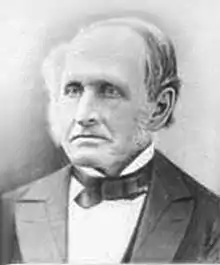
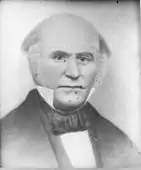
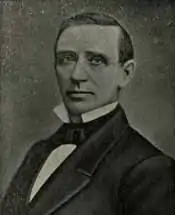
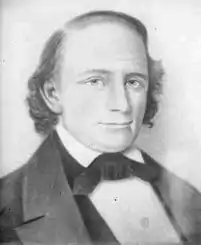

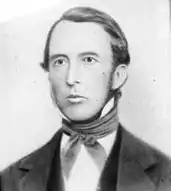
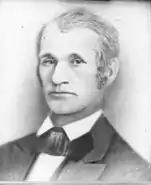
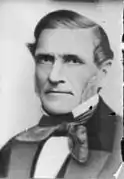
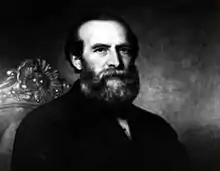
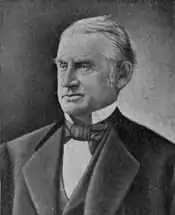
.jpg.webp)

.jpg.webp)
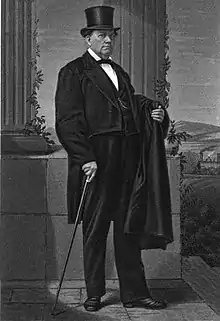
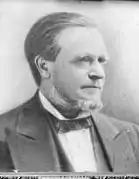

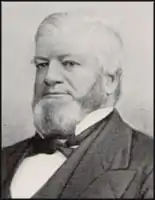
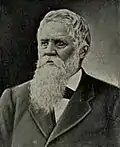
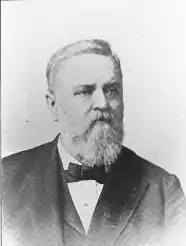
.jpg.webp)
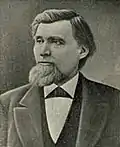
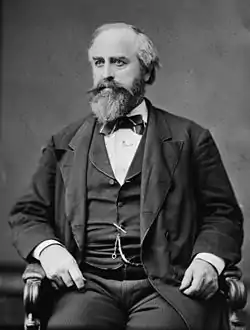
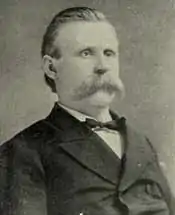
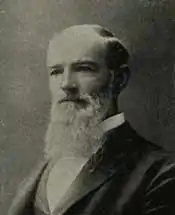
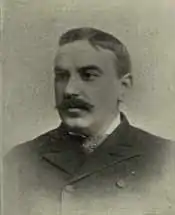
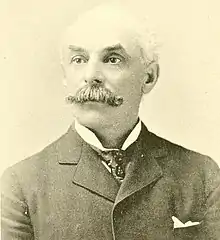
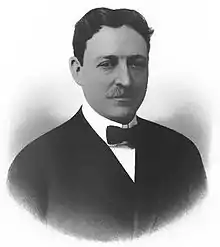
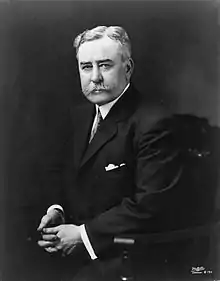
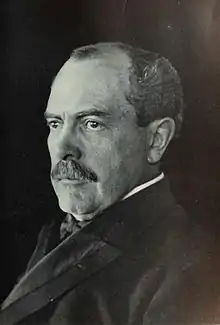
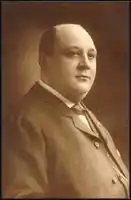
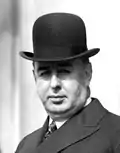
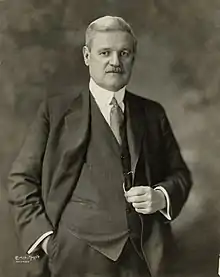
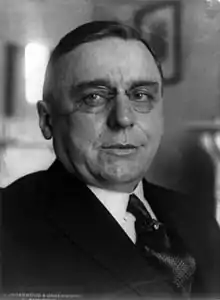
.jpg.webp)
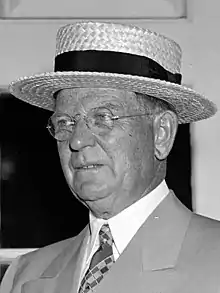
.jpg.webp)
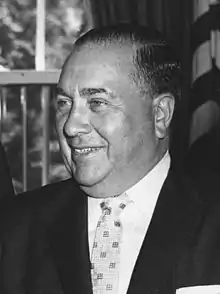
.png.webp)
.png.webp)
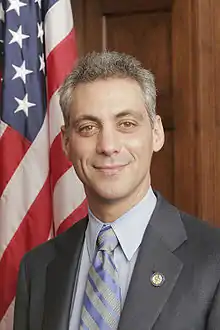
.jpg.webp)